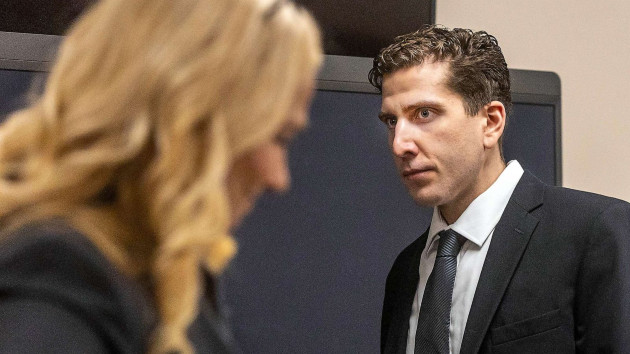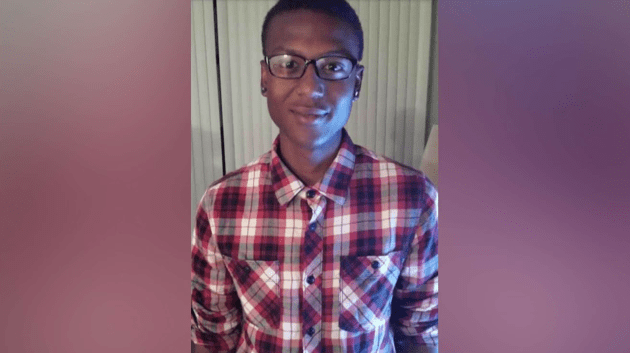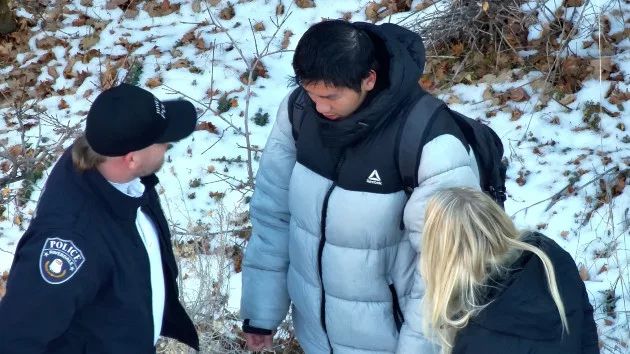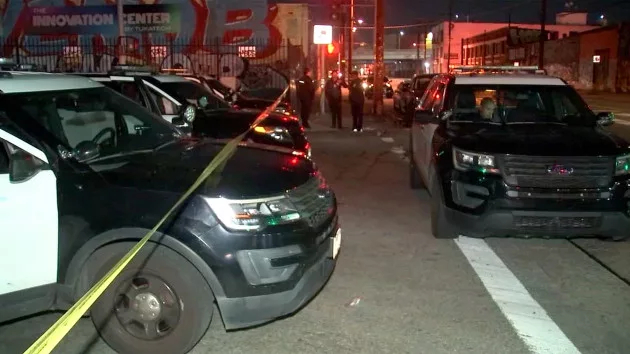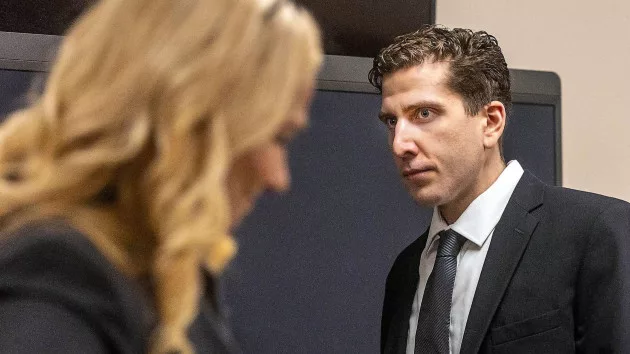
(NEW YORK) — Prosecutors in the case against murder suspect Bryan Kohberger said his defense team was trying to “grind the litigation” to a “halt” with flimsy arguments and attempting to “buy more time” to challenge his indictment.
Defense attorneys for Kohberger, a one-time doctoral candidate accused of killing four college students last year, had asked for a stay by “raising allegations of technical violations without ever explaining how any reach the ‘substantial’ standard set forth” in Idaho’s jury selection process statute, prosecutors wrote in a court filing released Monday.
Prosecutors said the reasons Kohberger’s defense lawyers gave were outside the scope of statute or were a misreading of the statute. They added that Kohberger “has delivered on his promised strategy: he seeks a stay to buy more time to challenge the indictment in this case.”
Kohberger’s team in July requested for the second time that the case be paused, alleging an “apparent failure” in the grand jury process. Defense attorney Anne Taylor said, without elaboration, that “other irregularity exists within the grand jury process and further investigation is necessary to determine the impact, if any, in the convening of this grand jury.”
In Monday’s filing, the prosecution itemized and responded to the defense’s claims of “failure” in the selection process.
Kohberger’s team has “not factually asserted a substantial failure to comply” with the jury selection process, the prosecution said, adding it has long been clear they were “determined” to get a stay even before they laid eyes on any of the grand jury materials that could back up their claims.
The defense had requested a pause in June, before they had seen the grand jury materials that would form the basis of their challenge. That request was denied.
Kohberger is charged with the murders of four University of Idaho students: Ethan Chapin, 20; Madison Mogen, 21; Xana Kernodle, 20; and Kaylee Goncalves, 21. If convicted, he could face the death penalty.
Prosecutors allege that in the early morning hours of Nov. 13, 2022, Kohberger, a criminology Ph.D. student at nearby Washington State University, broke into an off-campus home and stabbed the four students to death.
After a six-week hunt, police zeroed in on Kohberger as the suspect, arresting him on Dec. 30, 2022, at his family’s home in Pennsylvania. He was indicted in May and charged with four counts of first-degree murder and one count of burglary. At his arraignment, he declined to offer a plea, so the judge entered a not-guilty plea on his behalf.
A trial is scheduled for Oct. 2, though a delay is likely.
In Monday’s filing, the Latah County prosecutor laid out parts of the grand jury process with which the defense had taken issue.
Taylor had voiced concerns in a sealed affidavit about “individual juror bias, or statements made by the court” during the selection process, the prosecution said. The prosecution said Idaho’s jury selection rule does not address those issues, so they would not work as basis for the defense’s argument.
Some of the questionnaires returned by potential jurors were missing “certain numerical” information “at the top of the page,” the defense attorneys said, according to the prosecution. But that “clerical” information is not required by Idaho statute, the prosecution said.
On their questionnaire, one of the grand jurors “marked a box indicating that they do not comprehend English,” according to Monday’s filing.
If someone can’t understand English, that indeed disqualifies them from sitting on a grand jury. However, the juror “was presumably able to otherwise complete the questionnaire form entirely in English, and to participate in the grand jury proceedings,” the prosecution said, which shows a mistaken stroke of the pen that “merely checked the wrong box of a lengthy form” rather than a language barrier.
On their questionnaire, one of the grand jurors disclosed that they were a prior criminal defendant, the prosecution writes of the defense’s claims against the grand jury selection. Being a prior criminal defendant “does not preclude someone from sitting on a grand jury,” the prosecution said. Only those with a felony criminal conviction are disqualified.
The defense took issue with another grand juror who “did not mark whether they were a prior criminal defendant” and did not affirm they were providing truthful responses on their questionnaire, according to Monday’s filing. Kohberger’s team “alleges that one of the grand jurors submitted an incomplete questionnaire and suggests that this somehow violated the Act,” the prosecution said. Even if the jury commissioner had failed “to conduct the ministerial task of sending the questionnaire out a second time,” it still didn’t rise to a level of a “substantial failure to comply” with the statute, the prosecution said.
Kohberger’s latest attempt for a stay is set for argument at a pretrial hearing this week.
“The Court should decline to indulge the Defendant’s already-stated intention to buy more time to engage in various litigation strategies,” the prosecution wrote. “This motion, like his last, should be denied.”
Copyright © 2023, ABC Audio. All rights reserved.


